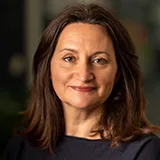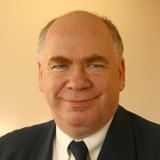Please note: this event has passed
Chair: Professor Rachel Kerr, Professor of War and Society, Department of War Studies
Speakers:
- Professor Sir Lawrence Freedman, Professor Emeritus of War Studies, King’s College London
- Dr Jan Willem Honig, Senior Lecturer in War Studies, King’s College London
- Rebecca Newell, Head of Art, Imperial War Museum
- Dr Paul Lowe, Reader in Documentary Photography, London School of Communication, University of the Arts London
War is a distinctly human activity. So is art. It is no wonder then that as long as humanity has fought wars and sought peace, artists have responded in as varied and diverse ways as the wars that provoked them.
Art has been used as propaganda, to bolster morale and nation-building on the one hand. To campaign against war through visceral and highly personalised responses to the brutality of war, on the other. These include Francisco de Goya’s Disasters of War (1808-1913), Otto Dix’s depiction of the horror of First World War trenches in Flanders, and Pablo Picasso’s Guernica (1937).
Art also offers a means to expand our understanding of the nature and character of war through the application of different lens, and, crucially, a means to understand society’s changing attitudes to war and peace.
This panel, convened by the Arts and Conflict Hub in the Department of War Studies will reflect on the relationship between art (in all its visual forms, including drawing, painting, sculpture, film photography, posters and cartoons) and war.
They will discuss why and how does war matter to art, and art matter to war? What can we learn from studying art and artists about studying war in all its forms? What can we learn about the societal and cultural attitudes to war? What can art do for war and how can it be invoked for peace?
This event is part of the War Studies at 60 Seminar Series, a series of events exploring key issues in security and defence as part of the celebrations marking the 60th anniversary of the Department of War Studies.
Speaker Bios
Professor Sir Lawrence Freedman is Emeritus Professor of War Studies, King's College London. He was Professor of War Studies from 1982 to 2014 and Vice-Principal from 2003 to 2013.He was educated at Whitley Bay Grammar School and the Universities of Manchester, York and Oxford. Before joining King's he held research appointments at Nuffield College Oxford, the International Institute for Strategic Studies and the Royal Institute of International Affairs. Elected a Fellow of the British Academy in 1995 and awarded the CBE (Commander of the British Empire) in 1996, he was appointed Official Historian of the Falklands Campaign in 1997. In 2003, he was awarded the KCMG (Knight Commander of St Michael and St George). In June 2009 he was appointed to serve as a member of the official inquiry into Britain and the 2003 Iraq War. He has written on international history, strategic theory and nuclear weapons issues, as well as commenting on current security issues. Among his recent books are Strategy: A History (2013), the Future of War: A History (2017), Ukraine and the Art of Strategy (2019) and, with Jeff Michaels, the 4th edition of The Evolution of Nuclear Strategy (2019). He is currently working on a book on the Politics of Command.
Dr Jan Willem Honig is a Senior Lecturer in the Department of War Studies, King’s College London. His research focuses on the relationship between politics and war; the development of Western strategic thought and practice from the Middle Ages to the present; the theories of Clausewitz and their influence; and the dynamics and mechanics of European security and foreign policy-making. His most recent book is a volume, edited with Andreas Herberg-Rothe and Daniel Moran, was Clausewitz: The State and War, which was published by the prestigious German political science publisher Franz Steiner in Stuttgart in August 2011. He is currently writing a book for Cambridge University Press which seeks to uncover what we in the West have come to understand by ‘winning wars’ and how we think the use of force generates desired political effects. This book project is part of a major £750,000 research programme funded by the Swedish Armed Forces on ‘Organisational Culture, Norms and Modern Warfare’, which is run from the Department of Peace and Conflict Research at Uppsala University.
Dr Paul Lowe is a Reader in Documentary Photography at the London College of Communication, University of the Arts, London, UK. Paul is an award-winning photographer and educator, whose work is represented by the VII Photo Agency. He has covered breaking news the world over, including the fall of the Berlin Wall, Nelson Mandela’s release, famine in Africa, the conflict in the former Yugoslavia and the destruction of Grozny. His book, Bosnians, (2005) documents 10 years of the war and post war situation in Bosnia. His research interest focuses on the photography of conflict, and his most recent books include Photography Masterclass (2017) and A Chronology of Photography(2019) and Understanding Photojournalism (2018).
Rebecca Newell is Head of Art at the Imperial War Museum (London), working across the five branches on all aspects related to the care, display and interpretation of the IWM’s preeminent twentieth and twenty-first century art collection. Priorities include collections development, new commissioning and display, working directly with artists and forging new arts and cultural sector partners. She is IWM’s lead subject specialist for art history and engagement and is part of the research-active staff community at IWM, working often with IWM Institute network of Associates, experts and academics. Rebecca has recently curated a large-scale commission with global artist and activist Ai Weiwei for IWM London and an exhibition of Blitz paintings with a focus on the experience of Londoners for Churchill War Rooms. She is co-leading the IWM-18 NOW Legacy Fund which will make £2 million available to artists and cultural organisations for new art commissions across the UK from 2021. Other areas of research interest include decolonisation practice within museums and marginalised histories, issues of representation and the role of the artist in recording and memorialising conflict. Rebecca is currently undertaking a research project on sexual and gender violence in conflict and early post-conflict spaces, and supervising a PhD, in collaboration with Birkbeck, on militarised masculinities with focus on recent service experiences and material culture.


